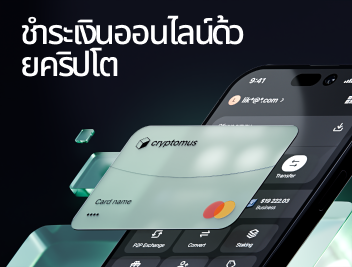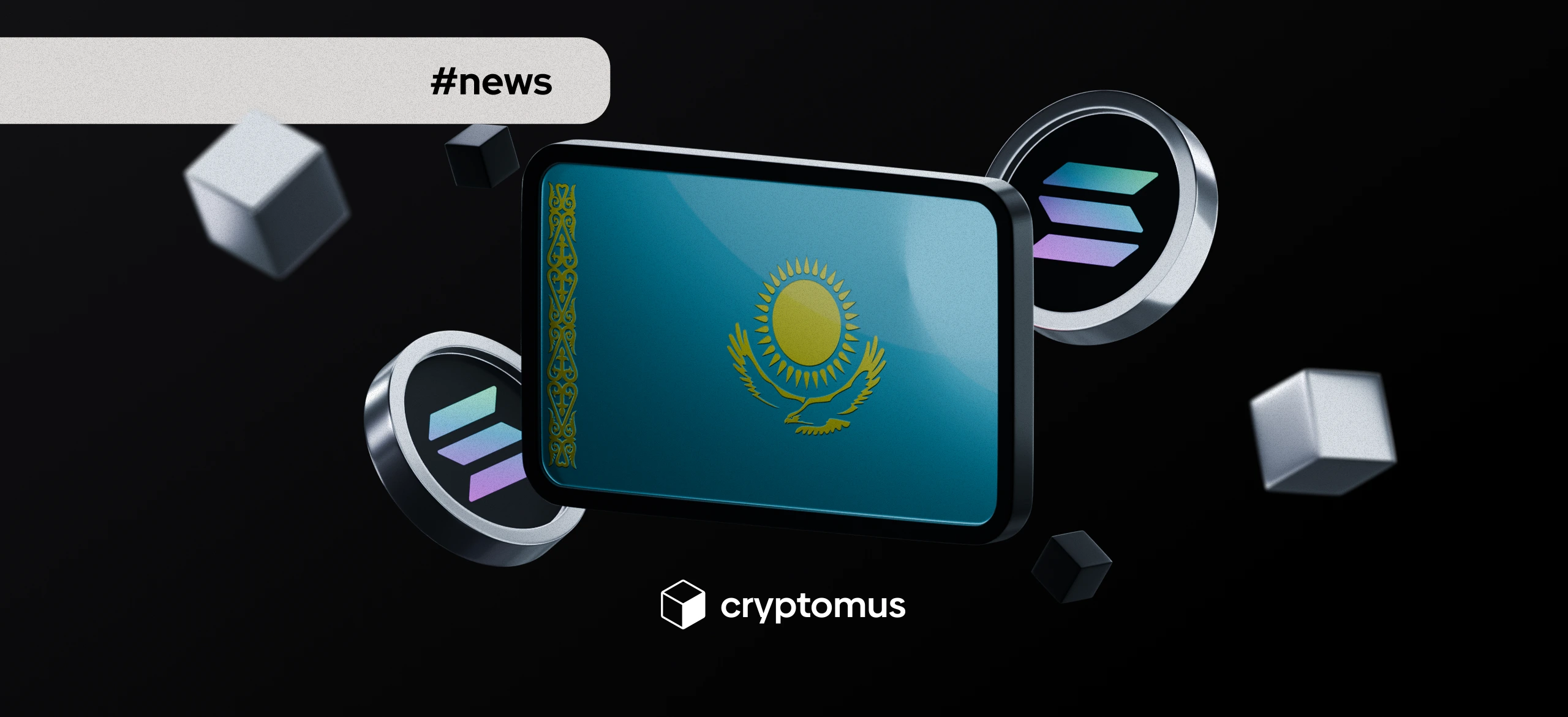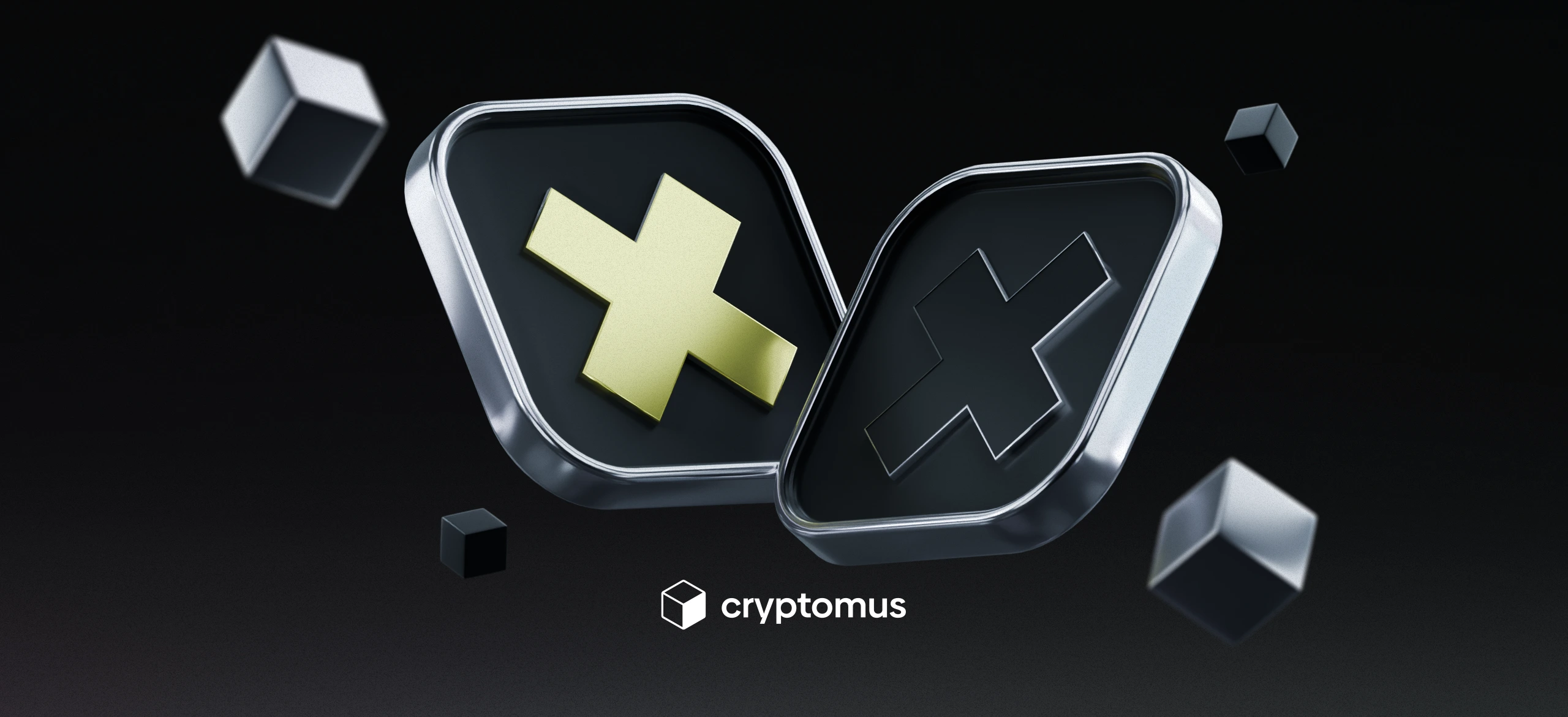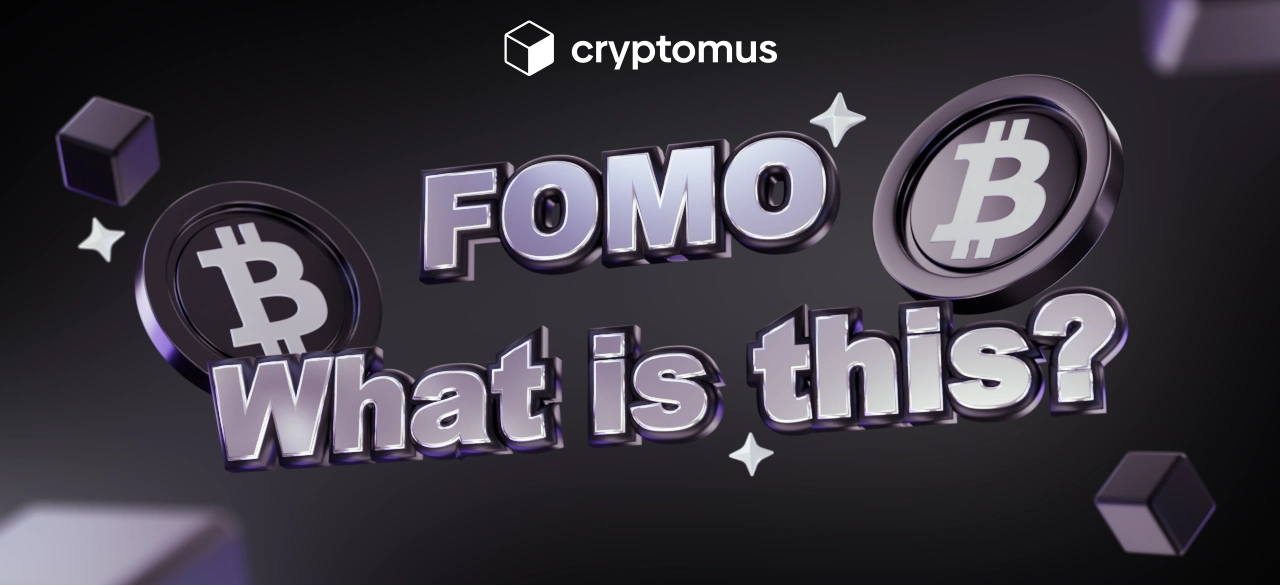
คำศัพท์คริปโตยอดนิยม
สารบัญ
ค้นพบคำสแลงยอดนิยมอย่าง LFG, FOMO, FUD, DEGEN, HODL และ 10x เรียนรู้ความหมายของพวกมันและผลกระทบที่มีต่อชุมชนคริปโต
คุณน่าจะเจอสแลงอยู่ในชีวิตประจำวัน ไม่ว่าจะเป็นในโฆษณา ข้อความจากเพื่อน หรือแม้แต่ได้ยินใครคุยกันตามถนน ลองจินตนาการดูว่าโลกคริปโตเองก็เต็มไปด้วยคำย่อและคำศัพท์แปลก ๆ เช่นกัน เวลาเจอ "LFG" หรือ "FUD" คุณอาจสงสัยว่า “มันแปลว่าอะไร?” วันนี้ เราจะพาคุณไปรู้จักกับคำย่อดิจิทัลที่ใช้กันบ่อยที่สุด ที่ช่วยให้คุณกลมกลืนไปกับโลกของเทรดเดอร์และผู้ที่หลงใหลในคริปโต
ความพิเศษของชุมชนคริปโต
ชุมชนคริปโตโดดเด่นด้วยภาษาที่เป็นเอกลักษณ์และความรู้สึกเป็นหนึ่งเดียวกันของสมาชิก แพลตฟอร์มหลักในการสื่อสารและแลกเปลี่ยนไอเดียคือโซเชียลเน็ตเวิร์ก เช่น Twitter, Reddit และ Discord อย่าลืมว่า Cryptomus เองก็มีช่องทางโซเชียลของตัวเอง และเรายินดีอย่างยิ่งหากคุณเข้ามาเป็นส่วนหนึ่งกับเรา!
ผู้ที่คลั่งไคล้ดิจิทัลเต็มไปด้วยพลังงานสร้างสรรค์ ดังจะเห็นได้จากจำนวนมีม คำสแลง และคำย่อที่พวกเขาคิดขึ้นมา หากอยากรู้สึกสบายใจกับวงการนี้ คุณจำเป็นต้องเข้าใจภาษาของมัน ไม่ว่าคุณจะเทรด ลงทุน หรือแค่สำรวจอุตสาหกรรมนี้ก็ตาม เอาล่ะ มาลุยกับคำศัพท์ยอดนิยมกันเลย
FOMO
สแลงคริปโตอันดับหนึ่งคือ "FOMO" ย่อมาจาก Fear Of Missing Out หมายถึงความกลัวที่จะพลาดโอกาสเกี่ยวกับเหรียญใด ๆ บ่อยครั้งความกลัวนี้ผลักให้เทรดเดอร์ทำผิดพลาดซ้ำ ๆ เช่น รีบตัดสินใจด้วยอารมณ์ ส่งผลให้ตัดสินใจอย่างไร้เหตุผลและขาดทุนหนัก การขึ้นลงของ Bitcoin ในปี 2021 เป็นตัวอย่างที่ชัดเจนของ FOMO
LFG
อีกคำที่ใช้บ่อยคือ "LFG" มาจาก Let’s F**ing Go!* โดยชุมชนใช้เพื่อแสดงความตื่นเต้น โดยเฉพาะเวลาตลาดเป็นขาขึ้นและราคาพุ่งสูง คุณจะเห็นสื่อและโซเชียลเต็มไปด้วยคำย่อนี้
FUD
ในชุมชนคริปโต "FUD" ย่อมาจาก Fear, Uncertainty, and Doubt ใช้อธิบายกลยุทธ์ทางจิตวิทยาที่สร้างมุมมองเชิงลบต่อเหรียญ สถานการณ์ตลาด หรือโปรเจ็กต์ DeFi บล็อกเกอร์ เพจโซเชียล และข่าวลือมักกระจาย FUD กัน ซึ่งความลบนี้มีผลต่อราคาตลาดโดยตรง
น่าสนใจที่ FUD ตรงข้ามกับ FOMO แม้ทั้งคู่จะเกิดจากความกลัว เมื่อราคาขึ้น คนอาจตกเป็นเหยื่อ FOMO กลัวพลาดโอกาส แต่เมื่อราคาตก บรรยากาศกลับเต็มไปด้วย FUD และความกลัวที่จะขาดทุนครอบงำแทน
DEGEN
ในคริปโต "DEGEN" มาจาก degenerate ใช้เรียกเทรดเดอร์สายเสี่ยงที่ทำการซื้อขายอย่างหุนหันพลันแล่น ไม่ศึกษาข้อมูลก่อน ในชุมชนคริปโต DEGEN เป็นทั้งตราแห่งเกียรติและการล้อเลียนตัวเอง
HODL
คำนี้ดูเหมือนสะกดผิดจาก "HOLD" ใช่ไหม? เกือบใช่แล้ว แต่จริง ๆ "HODL" มาจาก Hold On Dear Life คำนี้เกิดขึ้นราว 10 ปีก่อนจากการพิมพ์ผิดในฟอรั่ม และกลายเป็นมีมที่ฝังรากในศัพท์คริปโต
ลองนึกถึงเทรดเดอร์ที่ใช้กลยุทธ์ซื้อแล้วถือ หมายความว่าเขาไม่คิดจะขายสินทรัพย์แม้ตลาดพังลง เพราะเชื่อมั่นในมูลค่าระยะยาว และนั่นทำให้เขาเป็น "HODLer" ของเหรียญนั้น
PnD
ในคริปโต PnD หมายถึง Pump and Dump คือการปั่นราคาสินทรัพย์ดิจิทัลให้สูงขึ้นเพื่อสร้างความต้องการเทียม แผนการแบบนี้ผิดกฎหมาย แต่ยังพบได้ในตลาดที่กำกับดูแลน้อย
10X หรือ 100X
10X หรือ 100X หมายถึงการคูณเงินลงทุน 10 เท่าหรือ 100 เท่า คำนี้ใช้กันมากเพื่อบรรยายโอกาสการเติบโตของเหรียญหรือโทเคน เทรดเดอร์หลายคนใฝ่ฝันที่จะเจอ "100X gem" ที่ทำกำไรมหาศาล
CT
ในคริปโต CT ย่อมาจาก Crypto Twitter คือชุมชนที่แอคทีฟบน Twitter รวมทั้งนักลงทุน อินฟลูเอนเซอร์ และเทรดเดอร์ที่แชร์ข่าว ความคิดเห็น และมีม ถือเป็นศูนย์กลางสำคัญของการสนทนาดิจิทัล
Jeet
ในคริปโต Jeet (มาจาก "Jit" ที่แปลว่า "loser") ใช้เรียกคนที่ขายสินทรัพย์เร็วเกินไปเพราะตื่นตระหนก หรือขายขาดทุน ทำให้พลาดกำไรที่อาจจะเกิดขึ้น
DYOR
DYOR ย่อมาจาก Do Your Own Research ปรากฏขึ้นเมื่อไม่กี่ปีที่ผ่านมา ใช้เตือนกันให้ศึกษาข้อมูลเหรียญหรือโปรเจ็กต์ให้ดีก่อนลงทุน
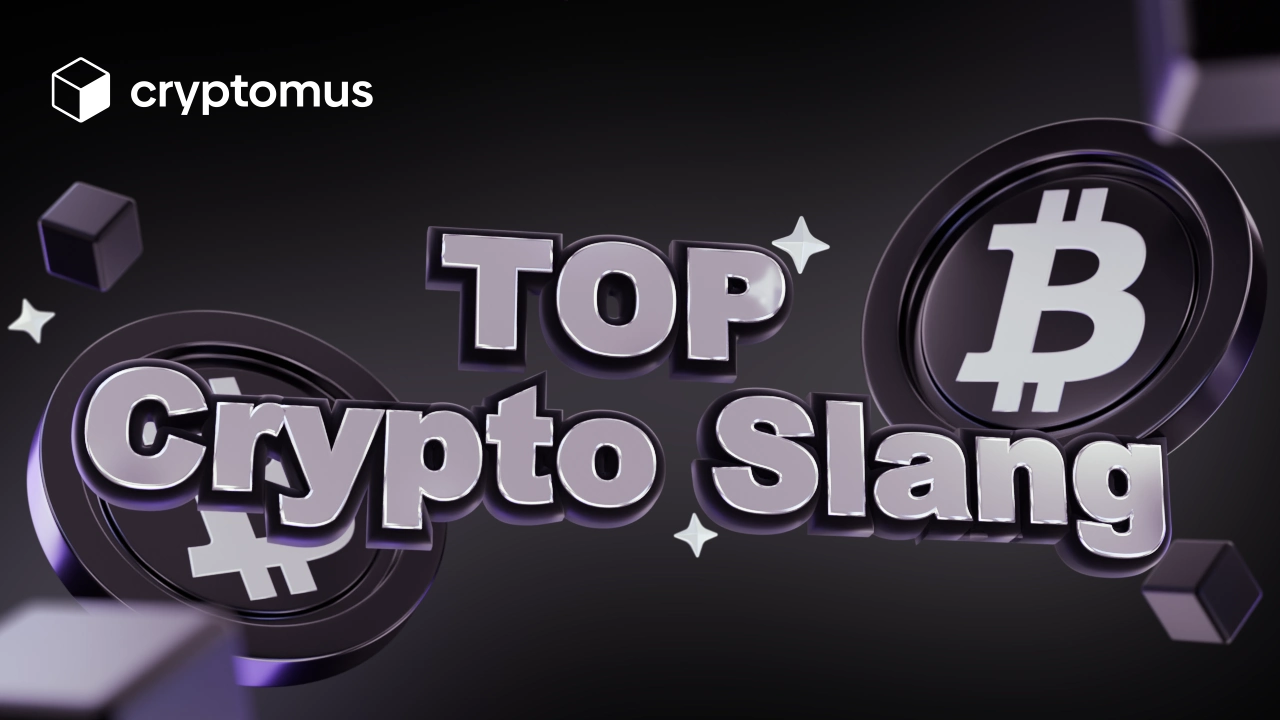
WAGMI / NGMI
NGMI มาจาก Not Gonna Make It หมายถึงการล้มเหลวในอนาคตเพราะตัดสินใจผิด เช่น การขายสินทรัพย์ตอนตลาดกำลังพุ่งสูง คำนี้มักใช้ล้อเลียนคนที่ไม่เข้าใจกติกาไม่เป็นลายลักษณ์อักษรของเกมคริปโต
ตรงข้ามกับมันคือ WAGMI ที่ย่อมาจาก We’re All Gonna Make It ใช้สร้างพลังบวก ความมั่นใจ และความหวังในโปรเจ็กต์ รวมถึงการหนุนใจให้ชุมชนยืนหยัดร่วมกัน
SAFU
SAFU มาจาก Funds Are Safe เกิดจากทวีตของ Changpeng Zhao ซีอีโอ Binance ตอนที่มีปัญหาการหยุดทำงานของแพลตฟอร์ม และกลายเป็นมีมที่ใช้ยืนยันว่าทรัพย์สินยังปลอดภัย
GM
GM ย่อมาจาก "good morning" ใช้เป็นคำทักทายเชิงบวกในชุมชนคริปโต โดยเฉพาะบน Twitter ที่ผู้ใช้นิยมโพสต์ GM เป็นการเริ่มวันใหม่
OG
OG ย่อมาจาก Original Gangster ใช้เรียกผู้ที่เข้ามาในวงการคริปโตตั้งแต่ยุคแรก ๆ ก่อนที่จะเป็นกระแสกระแสหลัก คนกลุ่มนี้มักได้รับความเคารพเพราะวิสัยทัศน์และประสบการณ์
PA
PA มาจาก Price Action หมายถึงการเคลื่อนไหวของราคาคริปโต นักเทรดวิเคราะห์สิ่งนี้เพื่อช่วยในการตัดสินใจ
REKT
REKT หมายถึง "wrecked" ใช้บรรยายการขาดทุนย่อยยับจากการเทรดหรือการลงทุนที่ล้มเหลว มักเกิดจากการตัดสินใจหุนหันพลันแล่น
PVP vs PPP
PVP ย่อมาจาก Player VS Player ส่วน PPP คือ Player VS Protocol PVP หมายถึงการเทรดแบบแข่งขันกันโดยที่กำไรของคนหนึ่งมาจากการเสียของอีกคน ส่วน PPP คือการโต้ตอบกับโปรโตคอลหรือระบบแบบกระจายศูนย์เพื่อรับรางวัล
BTD
BTD ย่อมาจาก Buy The Dip หมายถึงการซื้อเพิ่มเมื่อราคาตก โดยหวังว่ามูลค่าจะฟื้นกลับมา
IYKYK
IYKYK ย่อมาจาก If You Know, You Know ใช้สื่อว่าข้อความหรือโพสต์จะเข้าถึงเฉพาะบางกลุ่มที่เข้าใจมุข หรือข้อมูลนั้นจริง ๆ มักใช้แบบประชดเวลามีใครแชร์เรื่องที่ชัดเจนอยู่แล้ว
WL
WL หรือ Whitelist คือรายชื่อผู้ใช้ที่ได้รับสิทธิ์เข้าร่วม presale หรือกิจกรรมพิเศษก่อนใคร มักเป็นรางวัลสำหรับการสนับสนุนโปรเจ็กต์
วันนี้เราได้พูดถึงคำสแลงสำคัญในโลกคริปโตแล้ว คำเหล่านี้เป็นตัวกำหนดวัฒนธรรมและบรรยากาศของชุมชน เมื่อเข้าใจความหมายของตัวย่อเหล่านี้แล้ว คุณจะรู้สึกมั่นใจมากขึ้นเมื่อต้องพูดคุยกับเทรดเดอร์
แล้วคุณล่ะ ใช้คำไหนบ่อยที่สุด? แชร์กันในคอมเมนต์ได้เลย!
ทำให้การเดินทางสู่ Crypto ของคุณง่ายขึ้น
อยากเก็บ ส่ง รับ เดิมพัน หรือซื้อขายคริปโทเคอร์เรนซีใช่ไหม? Cryptomus ทำได้ทุกอย่าง — สมัครและจัดการกองทุนคริปโทเคอร์เรนซีของคุณด้วยเครื่องมืออันแสนสะดวกของเรา
เริ่มต้นใช้งาน
